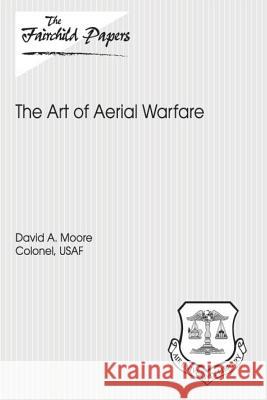The Art of Aerial Warfare: Fairchild Paper » książka
The Art of Aerial Warfare: Fairchild Paper
ISBN-13: 9781479364749 / Angielski / Miękka / 2012 / 108 str.
The author presents a stimulating paper about conducting aerial warfare, defined as the use of "the destructive instrument of airpower applied against an enemy in time of war." He challenges Airmen to acquire mental agility commensurate with the unprecedented flexibility of their instruments. The author fills a critical gap in aerial warfare literature. Most works focus on the technical or tactical aspects of the profession and medium, but stop short of discussions of the broader nature of war itself. Consideration of war in that larger sense is essential for those who seek to understand and especially apply air and space power in combat. The author beings with the Clausewitzian assumption, easily accepted in theory but difficult to maintain during combat, that was has the purpose of achieving political goals and that almost any reason for fighting a war has or soon acquires a political dimension. As he points out, the most difficult cases arise when the political objectives are difficult to reconcile with the reality of warfare: violence and casualties. His discussion of the many obstacles to achieving military and political aims raises many issues facing Airmen today and does not hesitate to take unequivocal positions. His clear and compelling examination of the changing context of warfare makes a strong case that the enemy's fielded forces are still the best targets of airpower. His consideration of the tension between the "seductiveness" of the incremental approach and legitimate need for political authorities to modulate the use of airpower is stimulating and forceful. His discussion of Douhet and the enduring fascination with "strategic attack" merits the consideration of those who plan modern aerial campaign.











